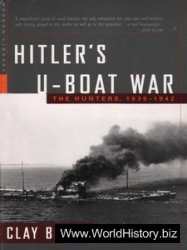The detente policy was thus something of a charade. Kissinger and Nixon had not set out to build a "global structure of peace" based on cooperation with the USSR. Their goal instead was to keep the Soviets in line by making sure they had to worry about a strong China on their Asian border. The US government, that is, as Kissinger told Pompidou in May 1973, was interested in "playing China against the Soviet Union." It therefore wanted to prevent the Soviets from "destroying China." To do that, the Americans needed to develop a certain political relationship with the PRC, so that the Soviets could not be sure the United States would remain passive if China were attacked. But that would take time, and while that relationship was developing, the USSR would somehow have to be kept from attacking that country. That was why US policy could not "seem to be directed against the Soviet Union"; that was why detente had to be "carried on in parallel with the Soviet Union"; that was why (as he told the Chinese) the US government needed to "do enough with the Soviet Union to maintain a formal symmetry." While China was making its way through the danger zone, the United States could not seem to be ganging up with that country against the USSR.768 The United States had to make it seem that it was also developing a relationship with the Soviet Union. The Soviets had to be made to feel they had something to lose if they moved against China.
The focus was thus on appearances, not substance. Kissinger and Nixon were not really interested in working with the Soviets on fundamental political problems. The Arab-Israeli question, for example, was obviously of central importance for all sorts of reasons, and it seemed that the USSR, especially after the 1973 Yom Kippur War, was willing to cooperate with the United States in working out a solution. But the US government was not interested in collaborating with the Soviets in this area no matter what position they took. Indeed, as Kissinger himself said, the United States was not particularly interested in the "merits of the dispute." "Our whole policy," he said, was to avoid "settling it cooperatively with the Soviet Union."769
The most important US-Soviet negotiations thus dealt not with political but with military questions. A number of agreements were reached in that latter area, and the Strategic Arms Limitation Treaty (SALT) agreements, limiting the size of each side’s strategic nuclear arsenals, were considered quite important at the time. Looking back, though, it appears that their importance had to do mainly with what those agreements seemed to symbolize. They made it seem that the two sides were determined to move away from the Cold War and put their relations on a more solid basis.
But putting symbolism aside, it is hard to see how the SALT agreements had a major stabilizing effect. With or without an agreement, neither side could hope to disarm the other. With or without an agreement, neither side had any incentive to preempt. In such circumstances, what exactly could an agreement in this area hope to accomplish? How exactly could a strategic arms agreement make for a more stable international order? But those fundamental questions were not addressed. The negotiations on offensive weapons, Schelling later wrote, were evidently not governed by any "guiding philosophy." Arms control, he said, was pursued "for its own sake, not for the sake of peace and confidence."770 It is difficult to quarrel with those judgments. In fact, it is hard to see how even the agreement limiting the deployment ofdefensive anti-ballistic missile systems - the famous Anti-Ballistic Missile (ABM) Treaty of 1972 - played a major role in stabilizing the US-Soviet strategic relationship. Given that ABM systems could easily and cheaply be overwhelmed by additional offensive weapons, even a massive defensive effort was bound to be futile and would have had little impact on that relationship.
But the arms-control negotiations and the SALT agreements were considered extremely important. Strategic arms control was viewed as the heart of the detente process. It seemed that the two great powers were dealing seriously with the military side of the Cold War, and that made it easier to ignore the fact that the really important military problems, the problems relating to the defense of Europe, were not being dealt with effectively.
Kissinger, of course, understood those problems - not just the military problems in the narrow sense, but the whole complex of problems, political as well as military, rooted in the waning ofthe American nuclear guarantee. This set of issues had been his main concern as a scholar since the mid-1950s, and those problems were certainly on his mind when he was in power in Washington. Even in December 1976, on the eve of his departure from office, he had no doubt that the European defense problem - and problems relating to the defense of other regions as well - were still of overwhelming importance.
But did the European defense problem really have to be taken so seriously? No one, after all, thought the Soviets were about to invade Western Europe. The real problem was less overt. The West, even in the official view, had to worry instead about "a more subtle mix of military, psychological and political pressures."771 But if that was all there was to the threat, how much danger were the Western countries really facing? Kissinger himself might have thought that Europe was on the verge of an "abyss," that Brandt, if he continued on his present course, would end up giving the Soviets a "veto over German policy," and that in about five years the point would "be reached where no German Chancellor [could] afford the hostility of the Soviet Union."772 But while those fears were not absurd, they seem exaggerated, and not just in retrospect. The real risk was probably never that great.
But that is not the same as saying that there was nothing to be worried about. Maybe the Soviets would never use nuclear weapons in Europe. Maybe they would calculate that the risk was just too great - that no one, not even the Americans themselves, could tell what the US government would do if those weapons were actually used, and maybe that core uncertainty would have a very powerful deterrent effect. But it was also possible that the Soviets would come to the conclusion that America would never attack Soviet territory, no matter what the Red Army was doing in Europe; maybe they would somehow try to take advantage of that situation. Who could tell what they would do five or ten years down the road? Who could tell how the Western countries would assess the threat or how they would deal with it? Events could take their course in all kinds of ways, and no one could predict with any confidence how things would develop.
Extreme pessimism may not have been warranted, but there was no deep stability in this system. There were just too many unresolved questions - questions about the future of the USSR and the future course of Soviet policy, about the future of Europe and the future of the US commitment to Europe, even about the future of the Sino-Soviet relationship. And one has the sense, studying this period, that those issues would not be left hanging forever - that sooner or later those questions would be answered, and that change, perhaps even fundamental change, was inevitable. But what sort of world would emerge as that process ran its course? Change there would be, but to what?




 World History
World History



![Road to Huertgen Forest In Hell [Illustrated Edition]](https://www.worldhistory.biz/uploads/posts/2015-05/1432477693_1428700369_00344902_medium.jpeg)





